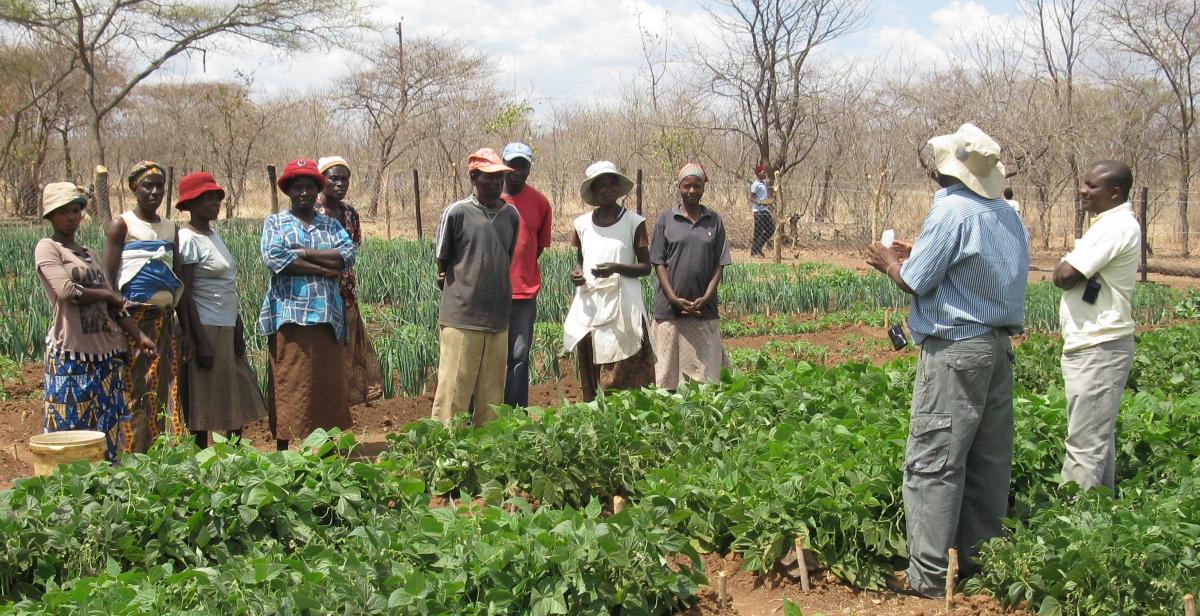Progressio's Environment Policy Officer, Lis Wallace, is lobbying the World Bank to help waterproof agriculture for smallholder farmers. Here, she explains why the 'Benchmarking the Business of Agriculture' project is an important process to influence...
In 2012 the World Bank began the ‘Benchmarking the Business of Agriculture’ (BBA) project. The project includes developing a set of indicators that capture the public laws, policies and actions that create a beneficial environment for agricultural growth.
Smallholder farmers, particularly women, play a critical role in food production. There are around 500 million smallholder farmers in the world and they produce up to 80% of the food consumed in Africa and Asia. It is therefore essential that the factors affecting the productivity of smallholder farmers are captured and measured by the indicators for Benchmarking the Business of Agriculture.
This World Bank project should help governments and donors to develop positive enabling environments for smallholder farmers, including those who are not yet market-ready. And it should facilitate greater participation in markets as a means of ensuring food security at household and national level. Progressio wants to see the BBA project work for smallholder farmers. That means ensuring that it avoids negative impacts on smallholder farmers and instead promotes their vital role within agricultural growth.
It is encouraging that ‘access to water’ has already been identified as being key to agricultural production and that the World Bank has committed to develop a water indicator as part of the BBA process.
Water is not just important to agribusiness. Throughout the world, Progressio’s local partners work with smallholder farmers who have told us that their greatest barrier to producing food and scaling up their participation in markets is inadequate and unreliable access to water. Smallholder farmers depend on sustainable and equitable access to water. Progressio believes that governments (and international donors) play a vital role in recognising and protecting water rights, regulating for good governance of water and investing in infrastructure and knowledge to improve access and management of water.
In Zimbabwe, Progressio partner Environment Africa is working alongside smallholder farmers in Lupane, Wedza and Guruve, teaching them the skills and techniques to use water, soil and land resources efficiently in order to grow food for their families and communities. Bee-keeping projects are providing livelihoods. You might not think about the water needed to make honey as you spread it on your toast, but without access to water people's livelihoods can quickly come under threat. Thankfully, in Wedza, I saw honey and peanut butter being proudly produced with the Environment Africa stamp on it ready to go on sale.

The ideal for all these smallholder communities is to be able to access markets in order to sell their produce. But in order to have something to sell at market, smallholder farmers need sustained access to reliable water resources, and this depends on investment in infrastructure and the promotion of agro-ecological farming methods, such as rainwater harvesting.
To find out more about Progressio’s recommendations for what a water indicator must address and why read our briefing paper: ‘How ‘Benchmarking Business in Agriculture can promote access to water resources for smallholder farmers’
Photo 1: Progressio development workers Chris Mweembe and Cliff Maunze teach agro-ecological farming methods to women in Lupane, Zimbabwe.
Photo 2: Honey pots produced by farmers in partnership with Environment Africa, ready to go to market in Wedza, Zimbabwe.



